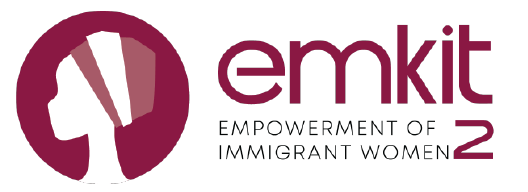Name of the workshop:
Influenced or Informed?
Main learning outcomes:
2.2.1 Appraise personal use of different forms of media
2.2.2 Reflect on the impact of Social Media and Social Media Usage on everyday life
Work area{s):
WA2: Accessing and Using Media
Duration:
4 hours
AC entry level
2
Class room activity
Outward bound activity
E-learning activity
Min. training materials:
Online connection
Beamer and PC
White board
Paper/pencils, post its etc
Extra rooms
Others:
Special attention:
Involvement of third parties
Special arrangements needed
Prep work for participants required
Others:
Annexes
Innovative didactical methodology used:
What it means:
1st part
2nd part
3rd part
1. Spaced learning
Highly condensed learning content is repeated three times, with two 10-minute breaks during which distractor activities such as physical activities are performed by the students
2. Cross Over learning
Learning in informal settings, such as museums and after-school clubs, can link educational content with issues that matter to learners in their lives
3. Learning through argumentation
Argumentation as means to attend to contrasting ideas, which can deepen their learning. Use of meaningful discussion in classrooms through open-ended questions, re-state of remarks in more scientific language, and develop and use models to construct explanations
4. Incidental learning
Incidental learning, unplanned or unintentional learning. It may occur while carrying out an activity that is seemingly unrelated to what is learned. It is not lead by a teacher
5. Context based learning
By interpreting new information in the context of where and when it occurs, and by relating it to what we already know, we come to understand its relevance and meaning
6. Computational thinking
Breaking large problems down into smaller ones (decomposition), recognizing how these relate to problems that have been solved in the past (pattern recognition), setting aside unimportant details (abstraction), identifying and developing the steps that will be necessary to reach a solution (algorithms) and refining these steps (debugging).
7. Learning by doing
A hands-on approach to learning, meaning students must interact with their environment in order to adapt and learn
8. Embodied Learning
Embodied learning involves self-awareness of the body interacting with a real or simulated world to support the learning process
9. Adaptive Teaching
Using data of learner’s previous and current learning to create a personalized path through educational content.
Data (f.e. time spent reading, scores) can form a basis for guiding each learner through educational materials. Adaptive teaching can either be applied to classroom activities or in online environments where learners control their own pace of study
10. Analytics of Emotions
Teachers responding to students’ emotions and dispositions, so that teaching can become more responsive to the whole learner
1st part
2nd part
3rd part
1. Q-A session
2. Case studies
3. Small group discussions
4. Active summaries
5. Demonstrations
6. Real world learning / real life scenario
7. Apprenticeship
8. Story board teaching
9. Out of class activity
10. Problem-based learning activity / problem solving
11. Collaborative preparation
12. Discussion questions / group discussion
13. Group activity
14. Story telling
15. Mind mapping
16. Brainstorming
17. Instructional video
18. Role playing
19. Self-assessment
20. (Mentor) work shadowing
21. Instruction
22. Event organisation
23. Online training
24. Learning game
25. Reflection
26. Coaching
2 hours, World Café: My media
2.2.1 Appraise personal use of different forms of media
Activity 1
Annexes:
Annex 1: World Café
Video:
1 hour 45 mins, Impact of Social Media in every-day life
2.2.2 Reflect on the impact of Social Media and Social Media usage on every-day life
Activity 2
Annexes:
Video:
15 minutes, Reflection
Activity 3
The Facilitator should review the learning outcomes, explore how the learning outcomes have been met, and identify any other learning that has been gained by the group.
Annexes:
Annex 2: Think Critically
Video:
